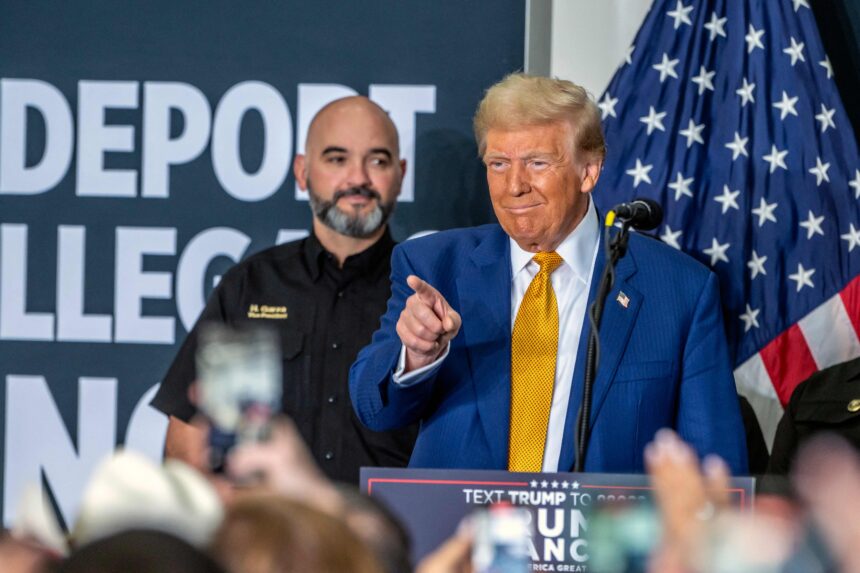WASHINGTON – As of yesterday, Donald Trump’s cabinet nominees started being scrutinised in a frenzied week on Capitol Hill.
United States’ (US) senators held confirmation hearings that could make or break their political careers.
Thirteen nominees will be grilled before 11 committees.
While many will sail through, others face controversies, ranging from alleged sexual assault and heavy drinking, to their relationships with dictators and vaccine scepticism.
The Trump picks have been in stringent preparations, taking part in mock hearings and coaching on how to negotiate tough questions while still maintaining unswerving loyalty to the president-elect.
“This time, people view the nominees as an extension of Donald Trump and his agenda,” Sean Spicer, Trump’s first White House spokesman, told CNN.
“They’re not there to defend their own views. They’re there to defend Trump’s policies,” he maintained.
Senate Republicans are keen for Trump’s national security nominees to be confirmed quickly.
Democrats may agree to fast-track some. However, they are determined to throw up roadblocks in front of candidates they see as unfit.
One of the first on the docket will be one of the most controversial, Pete Hegseth, the former Army National Guard officer and ex-Fox News host, nominated for secretary of defence.
Hegseth, whose hearing was yesterday morning, has faced allegations of sexual assault, financial misconduct and excessive drinking, as well as lingering questions over his views on women in the military.
He also has no comparable management experience.
Senator Elizabeth Warren, a member of the Armed Services Committee, described Hegseth as “a guy with a track record of being so drunk at work events that he needed to be carried out on multiple occasions”.
“Can we really count on calling Hegseth at 2h00 to make life and death national security decisions? Nope,” she said on X.
Hegseth can only afford three Republican rejections and still be confirmed, should every Democrat and independent vote against him.
But he has maintained Trump’s support while the excoriating headlines have multiplied.
Senate Republicans appear open to hearing him out.
Former Democratic congresswoman-turned-Trumpist Tulsi Gabbard is another candidate.
Her lack of qualifications and experience have raised alarm bells, as well as her attitudes toward US adversaries. Gabbard met then-Syrian president Bashar al-Assad in 2017, declaring him “not the enemy”.
She has also voiced sympathy for Russia’s invasion of Ukraine.
Opposition appears to be softening, however, after she flipped her stance to support a controversial government intelligence-gathering programme that she tried to repeal in 2020.
Some pressure on the nominees is expected from both sides of the aisle, especially for Robert F. Kennedy Jr., Trump’s nominee for secretary of health and human services, and an anti-vaccine conspiracy theorist.
But former Florida senator and foreign policy hawk Marco Rubio, Trump’s pick for secretary of state, is a sure bet with bipartisan support.
He will likely be confirmed before Trump takes office on 20 January.
Rubio gets his hearing today, along with homeland security secretary nominee Kristi Noem, attorney general nominee Pam Bondi and Central Intelligence Agency pick John Ratcliffe, who has been confirmed by the Senate before, as director of national intelligence.
Bondi was Trump’s second choice after his initial pick, former Florida congressman Matt Gaetz, withdrew from consideration after facing sexual misconduct and drug-taking allegations.
Some of the most potentially fiery hearings are yet to be scheduled, including for Kennedy and Kash Patel, Trump’s nominee to run the Federal Bureau of Investigation.
Patel, a conspiracy theorist, who vowed in a podcast that Trump would “come after” journalists, lawyers and judges he believes have not treated him fairly, is not expected to get his confirmation hearing until February.
Early yesterday, Trump’s team lost a bid to prevent the release of a report by then-special counsel Jack Smith, detailing the incoming president’s alleged criminal effort to overturn the 2020 election result that saw Joe Biden win.. -Nampa/AFP



